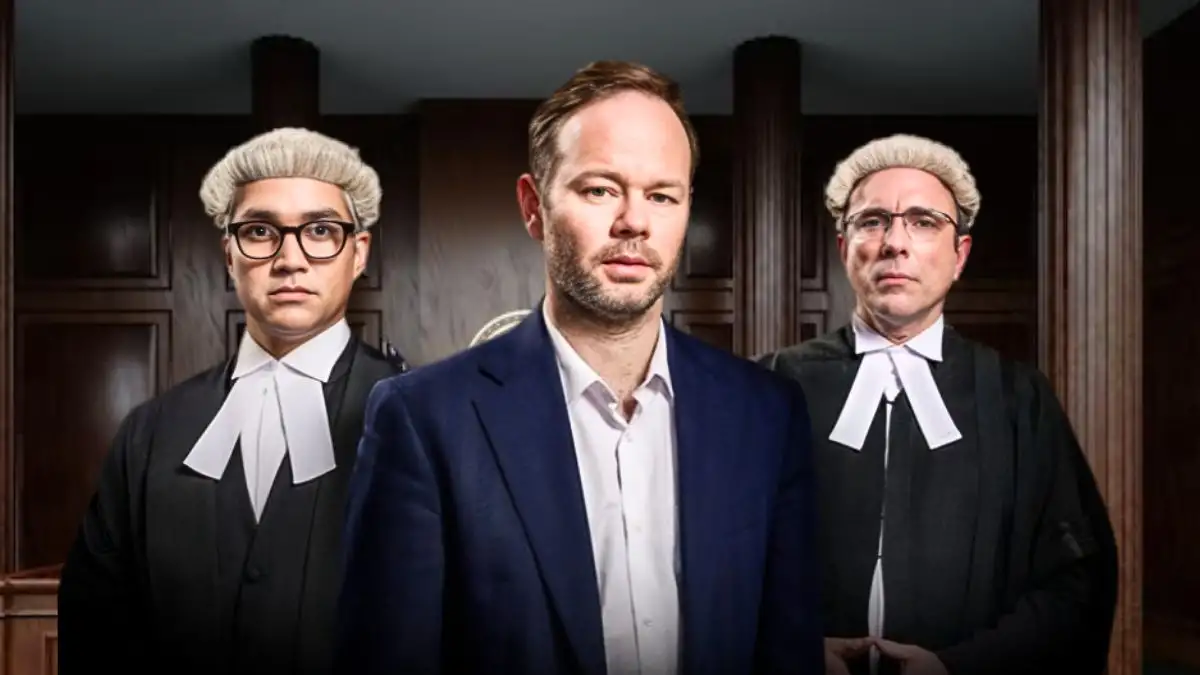What is the Jury Murder Trial? What Happened at a Jury Trial?
by P Nandhini
Updated Feb 28, 2024

What is the Jury Murder Trial?
"The Jury: Murder Trial" is a TV show where they pretend to have a real murder trial. But it's not real - it's just actors acting out what happened in a real case. They do this to see if two different groups of people, called juries, will decide on the same thing.
Each jury has to decide if the person in the trial is guilty or not guilty of murder. They make it seem like a real trial by using real courtroom stuff and asking the juries to make their decision based on what they see and hear. But here's the twist: the two juries don't know about each other.
They're kept separate, so they can't talk or share what they think. This way, they can see if different groups of people come up with the same answer. The show is on TV for four nights in a row.
Each night, they show what happens as the juries listen to the case and try to decide what they think. It's like a big experiment to see if the way our justice system works is fair and if different people might see things differently.
What Happened at a Jury Trial?
In a jury trial, a group of people called jurors listens to all the evidence presented in a court case. This evidence includes things like witness testimonies, documents, and any other information that helps understand what happened.
The jurors are regular people from the community, chosen randomly to be fair. They have the important job of deciding whether the person on trial is guilty or not guilty. During the trial, both the prosecution and the defense present their arguments. The prosecution tries to prove that the person being accused committed the crime.
They provide evidence and call witnesses to support their case. On the other hand, the defense tries to show that their client is not guilty. They may present evidence or witnesses to support their argument and challenge the prosecution's case.
After hearing all the evidence and arguments, the jurors must discuss and make a decision. They have to carefully consider everything they've seen and heard before reaching a verdict.
In most cases, the decision must be unanimous, meaning all the jurors must agree on whether the person is guilty or not guilty. It's a big responsibility, and the jurors take it seriously because their decision can greatly impact the life of the person on trial.
How the Jury: Murder Trial Experiment on Channel 4 Works?
In the "The Jury: Murder Trial" experiment on Channel 4, the process begins with the recreation of a real murder trial. Actors portray the events of the case based on original transcripts, ensuring accuracy in the portrayal of the legal proceedings.
What sets this experiment apart is the involvement of two separate juries, each comprising randomly selected individuals. These juries are tasked with independently considering the evidence presented to them without knowledge of the other group's existence.
Filmed over a period of ten days in a former courthouse in Essex, the trial unfolds with meticulous attention to detail. The juries are seated in specially constructed compartments within the courtroom, ensuring their isolation from one another.
This setup allows for a controlled environment where each jury receives the same information simultaneously, without any influence from external factors or the other jury's deliberations. Throughout the experiment, viewers witness how each jury interprets the evidence and reaches its verdict.
The show explores whether factors such as juror demographics, personal experiences, or individual biases influence the outcome of the trial. By examining the decision-making process of both juries, the experiment sheds light on the complexities of the British justice system and raises questions about the reliability and consistency of jury verdicts.
The Jury: Murder Trial - Channel 4 Release Date
"The Jury: Murder Trial" premiered on Channel 4 on February 26 and continued for four consecutive nights. Each episode aired at 9 pm and gave viewers a glimpse into the unique experiment. The show not only recreated a real murder trial but also featured two separate juries who deliberated on the case without knowledge of each other's existence.
As the series progressed, audiences witnessed how each jury processed the evidence presented to them and ultimately reached their verdict. The experiment aimed to shed light on whether different groups of people would arrive at the same conclusion when faced with the same information.
By airing over multiple nights, the show allowed viewers to follow along and understand the complexities of the justice system while questioning its fairness and reliability for all individuals involved.
What is the Jury Murder Trial - FAQs
It's a TV show where they act out a pretend murder trial to see if two groups of people make the same decision.
Two separate juries are involved, each making their own decision about the trial.
To see if different groups of people reach the same verdict when presented with the same evidence.
Yes, the jurors are regular people from the community, chosen randomly.
No, the juries are kept separate and unaware of each other's existence.







